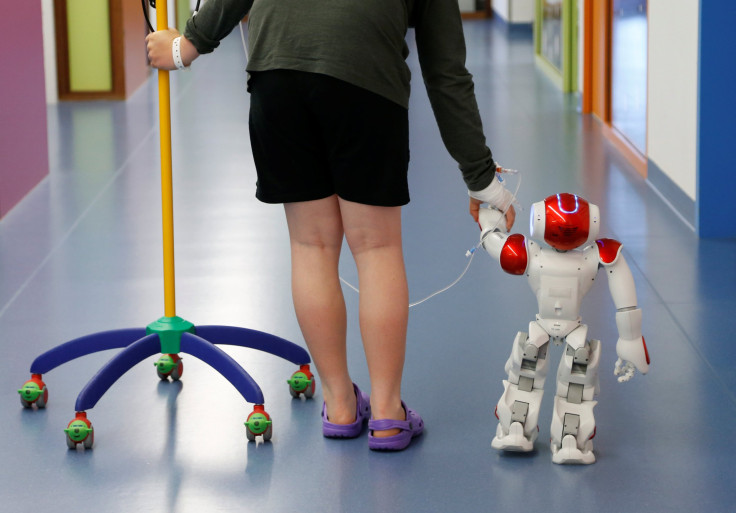Will Artificial Intelligence Surpass Our Own? Robots Might Help Neglected Elderly, Solve Social Care Crisis

Robots may be used to care for elderly people lacking family aid, according to a team of academics who estimated the highly advanced artificial intelligence could be available within three years, BBC News reported Monday.
The international team, sponsored by the European Union and Japanese government, have begun a $2.5 million project in an attempt to develop robots capable of looking after older people. More than 1 million elderly people were lacking the daily living assistance they need, according to charity Age UK. Researchers said robots would not only help out with physical tasks, but also provide companionship with uniquely programmed, culturally sensitive personalities.
"Assistive, intelligent robots for older people could relieve pressures in hospitals and care homes as well as improving care delivery at home and promoting independent living for the elderly," Professor Irena Papadopoulos, an expert in transcultural nursing, told BBC. "It is not a question of replacing human support but enhancing and complementing existing care."
Scientists from the U.K.'s Middlesex University and the University of Bedfordshire were being asked to help construct the so-called "Pepper" robots based on a humanoid model initially designed in 2014 by France's Aldebaran Robotics and Japan's SoftBank Group. By 2016, thousands of Pepper robots had been sold to Japanese households and were capable of understanding and expressing a wide range of emotions and even opinions. Some models have also been used in Japanese hospitals to assist patients in taking medicine and detect signs of pain. Developers have since followed up by working on new designs with cultural, colloquial characteristics suited for other areas of the world such as the U.S.
The project began less than a month after the E.U. and Japan announced an over $8 million collaboration called "InRel-Npower" aimed to develop "advanced materials for power electronics," especially high-tech Gallium nitride (GaN)-based devices. The U.K.'s impending from departure from the E.U., however, has caused concern among the nation's the scientific community about the viability of its participation in such international partnerships.
U.K. health minister David Mowat appealed Tuesday to citizens saying they had just as much of a responsibility to look after their elderly relatives as they did their children. He admitted the government had no "final answer" on the country's social crisis as the U.K.'s beleaguered healthy system announced cuts to services for the elderly, but said people had themselves had to step up.
© Copyright IBTimes 2025. All rights reserved.






















